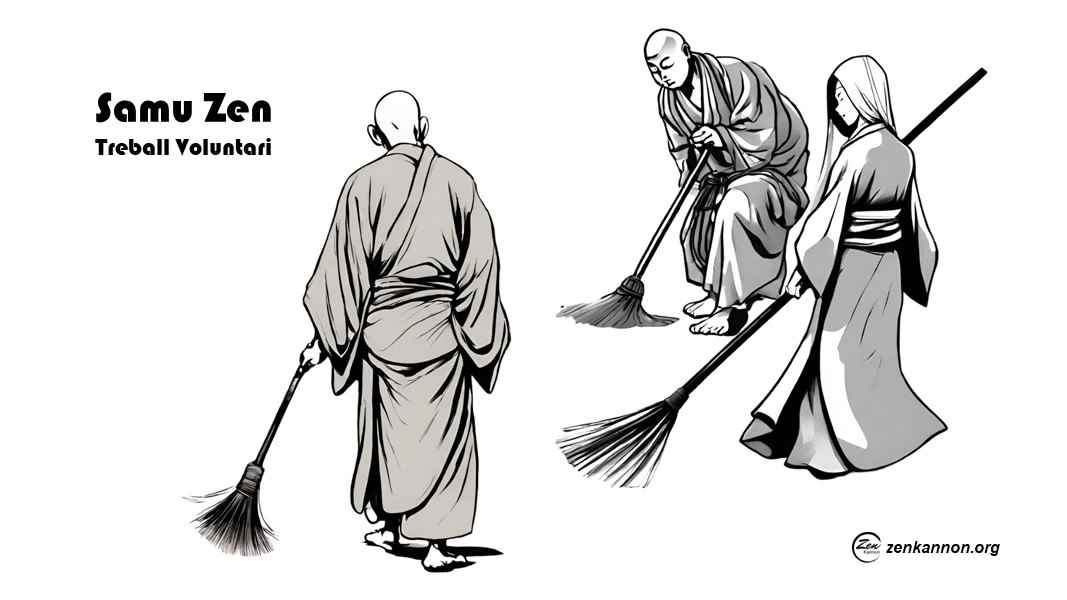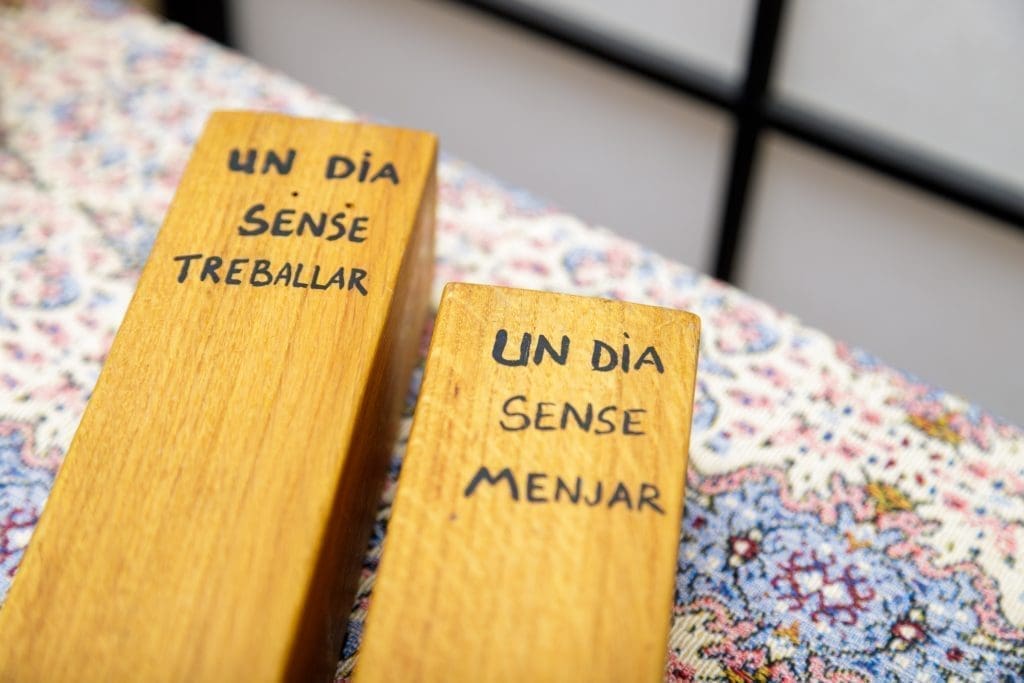Samu: Cooperating volunteers in a Zen Community
Cooperating volunteers is undoubtedly one of the most universal spiritual paths, shared by all traditions. In the context of Japanese Zen, it is called Samu, and similarly, in India, it is known as Karma-yoga. Voluntary work, or volunteering, ultimately means dedicating our effort and energy to carrying out tasks for the benefit of the community, selflessly, without expecting anything in return.
In general, in most Buddhist schools, cooperating volunteer work, or volunteering, plays a fundamental role. There are even those who set aside other spiritual practices, such as prayer, to devote themselves exclusively to volunteer work.
However, in Zen, as we know, zazen always takes precedence and is the foundation of everything. For this reason, voluntary work, or volunteering, in Zen cannot be understood without zazen. Before performing Samu, it is important to sit in zazen because it spiritually prepares cooperating volunteers for their tasks, infusing the work with the Samadhi of Zazen.
A Zen Story about samu
Once, an old master was working in the community garden. He had always done so, even after becoming the abbot. He was eighty years old and continued working in the garden with his hoe under the sun. Some young monks, feeling sorry for him, said:
“You are too old to work so hard. Why don’t you leave this work to the younger ones?”
However, the old monk, grateful for their concern, said: “I have dedicated my entire life to serving the community; why should I stop doing so now?”
One day without working, one day without eating.
But the young monks, with good intentions of freeing him from the hard volunteer work, hid his hoe and tools the next day. As a result, in the morning, seeing that he was without his work tools, the old monk sat peacefully in zazen in a corner of the garden.
The morning passed, and later, lunchtime arrived. Everyone stopped working to go eat, but the old monk continued meditating serenely.
The afternoon passed in the same way, and when it was time for dinner, he still did not get up. One of the young monks approached him and asked:
“You haven’t eaten all day, aren’t you going to join us for dinner?”
The elder replied: “One day without working, one day without eating.”
Hearing this, the young monks finally understood. They returned his tools and thanked him for the lesson.
This story illustrates the spirit of Zen cooperating volunteers and how Taisen Deshimaru transmitted it to European Zen monks.
The path of altruistic cooperating volunteers
Working for the community is the best way to let go of selfish habits, a practice that has existed in Zen Buddhism for centuries. It means stopping the focus on satisfying our own desires and needs.
It means ceasing to worry only about our personal image. For cooperating volunteers, offering our effort and energy without expecting personal gain becomes a clear sign of realization.
Those trapped in ignorance are incapable of giving selflessly. A person who can give selflessly and take on volunteer work, and even responsibility if necessary, shows they are free from the selfish attachments that prevent giving.
Volunteering is the ideal vehicle for perfecting ourselves on the Path of no-self and experiencing the great joy of altruism. All Buddhas have completely dedicated their lives to others without holding anything back, without worrying about how it might affect their image. How else could they have achieved Supreme Awakening?
Ask for more information about cooperating volunteers work at the Zen temple
Why do Samu (cooperating volunteers work) in a Zen temple?
To be a Cooperating volunteer at a Zen temple can be an enriching and transformative experience. Participating in the temple’s daily activities allows you to immerse yourself in Zen practice. You can learn from experienced monks and practitioners. These activities include practicing zazen, gardening, food preparation, and Zen arts.
Additionally, volunteering in a Zen temple offers the opportunity to disconnect from the daily routine and immerse yourself in a peaceful and serene environment. Living with other volunteers and practitioners is enriching, as experiences are shared, and bonds of friendship and support are formed.
On the other hand, volunteering at a Zen temple can also be a way to contribute to the well-being of the community and help preserve an ancient tradition. By collaborating in the conservation and maintenance of the temple, you are contributing to its continuity and the dissemination of its teachings.
In summary, cooperating volunteers at a Zen temple can be a unique and rewarding experience, offering spiritual growth, a break from the daily routine, the opportunity to build friendships, and contribute to the well-being of the community.
What is the importance of a Zen master’s presence during Samu (Cooperating volunteers)?
The presence of a Zen master during volunteering can play a significant role in the personal and spiritual development of a cooperating volunteer. A Zen master can guide volunteers in the practice of Zen meditation and mindfulness, helping them find the calm and mental clarity necessary to face any challenges that may arise during volunteer work.
Moreover, a Zen master can teach cooperating volunteers how to cultivate compassion and empathy towards others, which is essential in any type of volunteer work. Their presence can inspire volunteers to be more aware of their actions and act with kindness and generosity at all times.
The Zen master can also provide spiritual guidance and emotional support to volunteers, helping them find a deeper meaning in their volunteer work and stay motivated despite any difficulties they may encounter. In summary, the presence of a Zen master during volunteering can enhance the volunteer experience and contribute to personal and spiritual growth.


